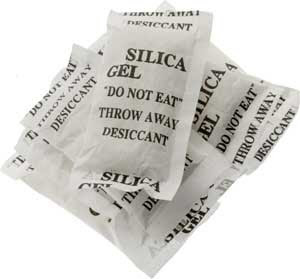
ASPCA Guide to Pet-Safe Gardening
ASPCA Animal Poison Control Center (APCC) experts field tens of thousands of calls each year involving animal companions who’ve had potentially hazardous contact with insecticides, weed killers and pet-toxic plants. "Keeping animals safe from accidental poisonings should not end once you've stepped outside," says Dana Farbman, APCC pet poison prevention expert. "Protecting your pet from potential hazards in your yard is just as critical." While gardens and yards are lovely for relaxing, they can also prove dangerous for our animal companions.
Our experts recommend you watch out for the following:
Poisonous Plants
When designing and planting your green space, it's a good idea to keep in mind that many popular outdoor plants—including sago palm, rhododendron and azalea—are toxic to cats and dogs. Sago palm and other members of the Cycad family as well as mushrooms can cause liver failure, while rhododendron, azalea, lily of the valley, oleander, rosebay, foxglove and kalanchoe all affect the heart. Please visit our full list—and pics!—of toxic and non-toxic plants for your garden.
Fertilizer
Just like you, plants need food. But pet parents, take care—the fertilizer that keeps our plants healthy and green can wreak havoc on the digestive tracts of our furry friends. Ingesting large amounts of fertilizer can give your pet a good case of stomach upset and may result in life-threatening gastrointestinal obstruction. Be sure to follow instructions carefully and observe the appropriate waiting period before letting your pet run wild outside.
Cocoa Mulch
Many gardeners use cocoa bean shells—a by-product of chocolate production—in landscaping. Popular for its attractive odor and color, cocoa mulch also attracts dogs with its sweet smell, and like chocolate, it can pose problems for our canine companions. Depending on the amount involved, ingestion of cocoa mulch can cause a range of clinical signs, from vomiting, diarrhea and muscle tremors to elevated heart rate, hyperactivity and even seizures. Consider using a less-toxic alternative, such as shredded pine, cedar or hemlock bark, but always supervise curious canines in yards where mulch is spread.
Insecticides
Like fertilizer, herbicides, insecticide baits, sprays and granules are often necessary to keep our gardens healthy, but their ingredients aren't meant for four-legged consumption. The most dangerous forms of pesticides include snail bait with metaldehyde, fly bait with methomyl, systemic insecticides with the ingredients disyston or disulfoton, mole or gopher bait with zinc phosphide and most forms of rat poisons. Always store pesticides in inaccessible areas—and read the manufacturer's label carefully for proper usage and storage.
Compost
You're doing the right thing for your garden and Mother Earth—you're composting! Food and garden waste make excellent additions to garden soil, but depending on what you're tossing in the compost bin, they can also pose problems for our pets. Coffee, moldy food and certain types of fruit and vegetables are toxic to dogs and cats, so read up on people foods to avoid feeding your pet.
Fleas and Ticks
Since fleas and ticks lurk in tall brush and grasses, it's important to keep those lawns mowed and trim. Fleas can cause excessive scratching, hair loss, scabs, hot spots and tapeworms as well as anemia from blood loss in both cats and dogs. Ticks can cause similar effects and lead to a variety of complications from tick-borne diseases such as Lyme disease, Rocky Mountain spotted fever and Babesia.
Garden Tools
Unattended garden tools may seem like no big deal, but rakes, tillers, hoes and trowels can be hazardous to pets and cause trauma to paws, noses or other parts of a curious pet's body. Rusty, sharp tools caked in dirt may also pose a risk for tetanus if they puncture skin. While cats don't appear to be as susceptible as dogs to tetanus, care should be taken by storing all unused tools in a safe area, not haphazardly strewn on the ground.
Allergy-Causing Flora
Ah-choo! Like their sneezy human counterparts, pets have allergies to foods, dust and even plants. Allergic reactions in dogs and cats can even cause life-threatening anaphylactic shock if the reaction is severe. If you do suspect your pet has an allergy, please don't give him any medication that isn't prescribed by a veterinarian. It's also smart to keep your pet out of other people's yards, especially if you're unsure of what kinds of plants or flowers lurk there. Keeping your pet off the lawn of others will make for healthy pets and happy neighbors.
This article was provided by the ASPCA. For more information,
click here.
 Right around the time Spring rolls around, so does the ambitious home improvement to-do lists. A great way to change the look of room is by adding a fresh coat of paint. What most people are not aware of is that you can't just dispose of left over paint with your regular weekly trash pick-up. But never fear, Atlanta Paint Disposal, offers a safe, convenient service to rid your home of its growing stock pile of half empty cans of paint.
Right around the time Spring rolls around, so does the ambitious home improvement to-do lists. A great way to change the look of room is by adding a fresh coat of paint. What most people are not aware of is that you can't just dispose of left over paint with your regular weekly trash pick-up. But never fear, Atlanta Paint Disposal, offers a safe, convenient service to rid your home of its growing stock pile of half empty cans of paint.










